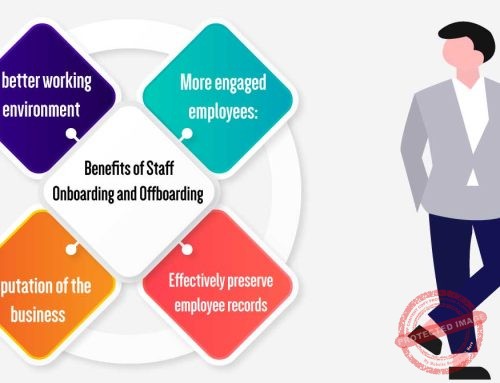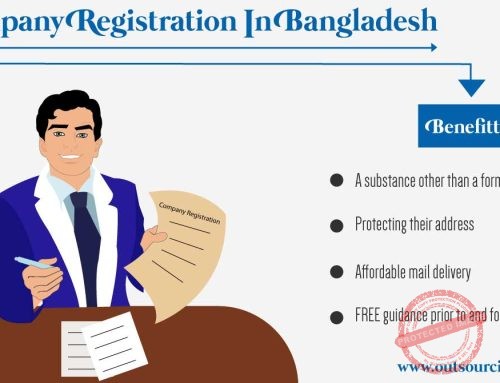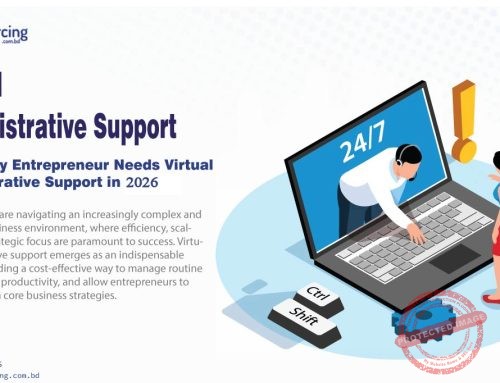Securing a Business Identification Number (BIN) is a pivotal step for entrepreneurs in Bangladesh. BIN, regulated by the National Board of Revenue (NBR), is an authentication for businesses under the Value Added Tax (VAT) system.
Registering for a BIN not only ensures your company’s compliance with Bangladesh’s tax framework but also lends legitimacy to your enterprise. This legitimacy is crucial for dealings with stakeholders, accessing financial services, and establishing trustworthiness in the market.
Moreover, possessing a BIN can enhance the credibility of your business in the eyes of stakeholders, including financial institutions and potential partners. A BIN is indispensable for launching and operating a legitimate business venture in Bangladesh.
As a result, the following question may arise, “Why Do Your Financial Activities Need to BIN Registration?”
A Business Identification Number (BIN) ensures tax compliance and legitimacy in financial dealings. Registered with tax authorities, a BIN enhances credibility, aids accurate tax reporting, and fosters trust among stakeholders, making it essential for transparent financial operations.
So, let’s find out below!
Why Do Your Financial Activities Need to BIN Registration?
A Business Identification Number (BIN) is essential for businesses, ensuring regulatory compliance and legitimizing financial operations across various regions. It streamlines financial activities, reinforcing transparency and credibility in the business landscape.
This unique identifier, often associated with tax frameworks like the Value Added Tax (VAT), is a testament to a business’s commitment to financial transparency and adherence to local fiscal regulations.
Registering for a BIN guarantees that the firm is recognized by local tax authorities and prepared to appropriately report and handle its tax responsibilities.
Moreover, a BIN registration can enhance a firm’s credibility among its partners, stakeholders, and financial institutions. It is not just about legal compliance; it’s about building trust and establishing a foundation for sound financial operations.
7 Advantages of BIN Registration
The Business Identification Number (BIN) registration, especially in the context of financial systems and tax compliance, offers numerous advantages:
1. Regulatory Compliance
BIN ensures that a business adheres to local fiscal regulations, such as the Value Added Tax (VAT) system.
2. Enhanced Credibility
For stakeholders, investors, and partners, a registered BIN signifies that the business operates legitimately and transparently.
3. Facilitated Transactions
Many financial and banking transactions require a BIN for verification, ensuring smoother business operations.
4. Tax Management
With a BIN, businesses can efficiently manage their tax obligations, ensuring accurate reporting and timely payments.
5. Risk Mitigation
A registered BIN helps safeguard against potential legal and financial disputes related to tax and other monetary operations.
6. Access to Financial Services
Financial institutions often require businesses to have a BIN to access certain services, including loans or credit facilities.
7. Enhanced Business Operations
For businesses operating across regions, a BIN can aid in smoother inter-regional financial activities, ensuring that transactions and tax obligations are managed according to regional standards.
Process of BIN Registration
In Bangladesh, the Business Identification Number (BIN) registration is a crucial step for businesses to ensure tax compliance, specifically in relation to the Value Added Tax (VAT). Here’s a summarized process of BIN registration in Bangladesh:
- Preparation: Gather all necessary documents. This usually includes trade licenses, bank statements, owner’s identification documents, and other pertinent business papers.
- Online Application: Go to the VAT Online Services (VOS) portal run by the National Board of Revenue (NBR). Complete the online VAT registration form.
- Document Submission: Attach and upload scanned copies of the required documents as instructed on the portal.
- Verification: Once submitted, the NBR will review the application and the attached documents for verification.
- Approval & BIN Issuance: After verification, if all requirements are met, the NBR will issue a unique BIN for the business.
- Physical Verification: In some cases, an NBR representative might visit the business premises for physical verification.
How Does BIN Registration Impact Your Banking Experience?
BIN registration, typically referring to a Bank Identification Number, has a profound influence on banking experiences. A BIN, as the initial set of numbers on debit and credit cards, identifies the issuing bank and its card transactions.
Its registration ensures transaction authenticity, fostering secure banking. For consumers, this means safer online and offline transactions, minimizing fraud risks. For banks, it facilitates real-time fraud detection, enhances service quality, and streamlines interbank processes.
Consequently, the overall banking experience, influenced by BIN registration, becomes more secure, efficient, and reliable for both banks and their clients.
How Is BIN Registration Essential for Cross-Border Business?
The BIN is more than just a unique identifier for businesses; it’s a vital tool, especially for companies engaged in cross-border trade. The BIN Registration ensures that they are recognized and compliant with the fiscal and regulatory norms of multiple jurisdictions.
BIN Registration facilitates smooth international transactions by ensuring that tax obligations in each country are transparently addressed. This is critical to avoid double taxation and to benefit from tax treaties between nations.
BIN Registration lends credibility to the business. When partnering with overseas entities or stakeholders, a registered BIN stands as a testament to the business’s legitimacy, ensuring trust and fostering smoother collaborations.
Moreover, cross-border commerce often involves intricate value chains and supply networks; having a BIN simplifies the tracking and auditing of transactions across these networks.
Difference Between BIN Registration and VAT Registration
Both BIN and VAT registration serve specific purposes, particularly in the context of tax systems in various countries. Here’s a brief table to elucidate the difference:
| Aspect | BIN Registration | VAT Registration |
| Purpose | Identification number for businesses for tax and regulatory compliance. | Registration for businesses to collect, report, and remit value-added tax. |
| Usage | Serves as proof of a business’s compliance with local fiscal regulations. | Enables businesses to charge VAT on goods and services and to claim VAT credits on business expenses. |
| Requirement | Often mandatory for businesses to operate legally in certain jurisdictions. | Typically required for businesses above a certain revenue threshold. |
| Benefit | Provides credibility to businesses, ensuring they meet certain standards. | Facilitates transparent tax collection and contributes to the country’s revenue. |
Why Do BIN Registration Matter in E-commerce Platforms?
In the rapidly evolving world of e-commerce, the Business Identification Number (BIN) plays a central role in creating a transparent, accountable, and efficient business environment.
It assures customers that they are purchasing from a legitimate vendor, fostering trust in the platform. This is paramount in an industry often fraught with concerns over counterfeit goods and dubious sellers.
From a regulatory perspective, the BIN ensures that e-commerce businesses are correctly reporting their revenues and paying the appropriate taxes, which is especially crucial given the volume and value of transactions these platforms manage.
Moreover, for cross-border e-commerce transactions, BIN registration aids in adhering to international tax compliance and regulatory standards.
Finally, with a BIN, e-commerce platforms can streamline their internal auditing processes, making financial management and oversight more efficient
The tax rates in Bangladesh are structured in the following manner: A standard VAT rate of 15% is applied to most goods and services. However, exports are exempt, with a rate of 0%. For businesses with a turnover of up to Taka 8 million, a Turnover Tax of 3% is levied instead of the standard VAT.
Why Do You Consider Bin Registration for Your Company?
BIN registration is pivotal for any business aiming for transparency, and regulatory compliance. For a company, possessing a BIN signals to stakeholders, partners, and customers that the firm operates within legal frameworks, ensuring that it meets fiscal obligations and standards.
This not only boosts trust among clients and potential investors but also safeguards the company from potential legal complications related to tax evasion or fraud.
Furthermore, in an increasingly globalized marketplace, having a BIN can streamline cross-border transactions, making international expansion and partnerships more accessible.
Considering BIN registration is a proactive step towards establishing a business’s reputation, ensuring regulatory compliance, and facilitating smoother financial operations.
5 Tips for BIN Registration
Certainly! Here are the top 5 tips for BIN (Business Identification Number) registration:
1. Research Requirements
Before initiating the process, familiarize yourself with the specific BIN registration prerequisites for your jurisdiction. Requirements can vary by region or country, so understanding them upfront can prevent unnecessary delays.
2. Gather Necessary Documentation
Accumulate all required documents such as trade licenses, bank statements, and owner’s identification. Ensure each document is current and valid, as outdated or incorrect information can complicate the registration process.
3. Use Official Platforms
Always conduct your registration through official government or regulatory platforms or websites. This ensures you’re receiving accurate information and protects your business details from potential fraud.
4. Seek Expert Advice
Consult with professionals, like tax consultants or legal experts, who are well-versed in the BIN registration process for your area. Their guidance can be invaluable, helping you avoid common pitfalls.
5. Ensure Data Accuracy
Be meticulous when inputting information during registration. Accuracy is essential, and inconsistencies between your application and official documents can result in delays or complications.
Conclusion
BIN registration is an indispensable component for businesses in today’s complex regulatory landscape. It not only provides a unique identifier for a company, and regulatory compliance, but also bolsters a business’s credibility in the eyes of stakeholders, partners, and customers.
As commerce becomes increasingly digital and cross-border, having a BIN ensures that businesses can operate transparently and efficiently, navigating both domestic and international markets with ease.
Thus, for businesses aiming to thrive in the modern marketplace, securing a BIN registration should be a foundational step. It’s a testament to a company’s commitment to integrity, professionalism, and adherence to the established rules of commerce.
FAQ
Is there a cost associated with BIN registration?
Some jurisdictions may offer free registration, while others might charge a fee. Check with the local regulatory body for precise details.
What documents are required for BIN registration?
While it depends on the region, typically you’ll need business licenses, identification documents of business owners, proof of address, and other relevant permits.
Why is BIN registration important?
A BIN ensures that businesses operate within the legal framework, adhere to tax regulations, and enhance credibility with stakeholders, vendors, and customers.






